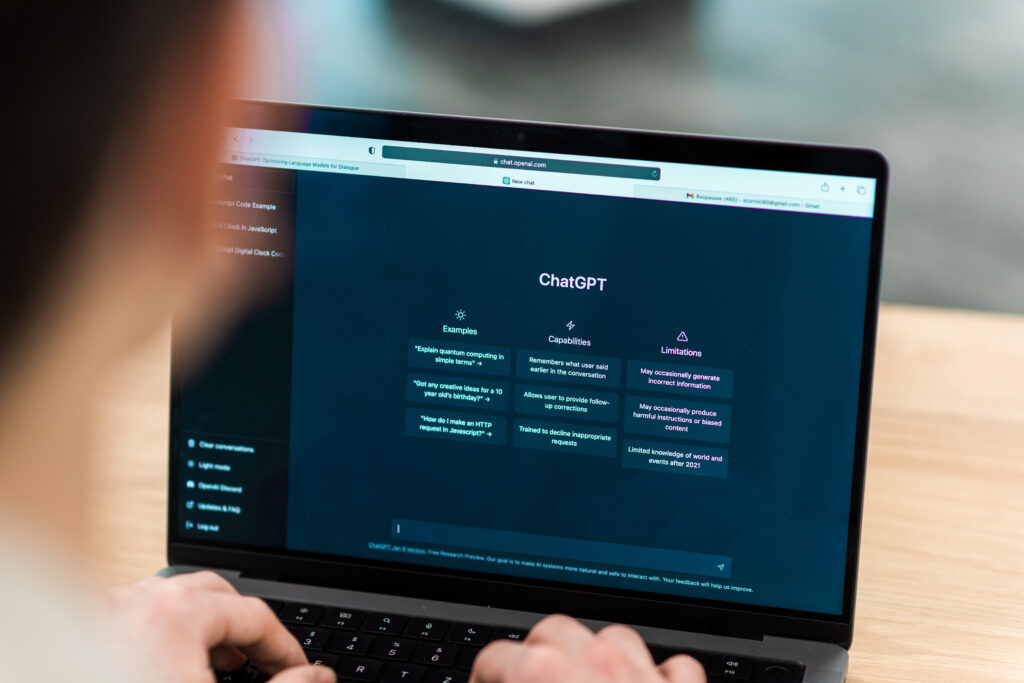In the rapidly evolving landscape of technology, cybersecurity stands as an imperative shield against the ever-growing threats in the digital realm. The emergence of artificial intelligence (AI) has ushered in a new era of possibilities and challenges. Among the groundbreaking AI technologies, ChatGPT, developed by OpenAI, is poised to revolutionize cybersecurity. This article delves into how ChatGPT is set to reshape the cybersecurity landscape by enhancing threat detection, bolstering incident response, and providing unparalleled insights into emerging risks.

- Enhanced Threat Detection
Traditional cybersecurity measures often rely on rule-based systems and signature-based detection methods. However, these methods fall short when faced with novel, sophisticated attacks that mutate and evolve. This is where ChatGPT steps in, leveraging its natural language processing (NLP) capabilities to identify patterns and anomalies that might go unnoticed by conventional systems.
ChatGPT can analyze vast amounts of unstructured data from various sources, such as text logs, emails, and social media, to uncover hidden threats. By learning from historical data and understanding context, it can identify subtle indicators of malicious activities, enabling organizations to stay ahead of cybercriminals. This heightened threat detection capability is a game-changer, helping prevent data breaches, malware infections, and other cyberattacks before they can wreak havoc.
- Bolstering Incident Response
When a cybersecurity incident occurs, time is of the essence. Rapid and accurate incident response is crucial to minimizing the impact of an attack. ChatGPT can serve as a virtual cybersecurity analyst, providing real-time assistance during critical moments. Its ability to process and understand human language allows it to assist security teams in analyzing the incident’s scope, identifying the attack vectors, and suggesting remediation strategies.
Furthermore, ChatGPT can assist in generating tailored incident reports and alerts for stakeholders, reducing the manual effort required in documentation. This automation not only accelerates incident response but also ensures consistent and reliable communication across the organization, fostering a more coordinated defense against threats.
- Unparalleled Insights into Emerging Risks
Predicting future cyber threats and vulnerabilities is an ongoing challenge. ChatGPT, fueled by its extensive training data and language comprehension, has the potential to transform how organizations anticipate and prepare for emerging risks. By analyzing trends, news articles, research papers, and discussions from online forums, ChatGPT can identify emerging attack techniques, vulnerabilities, and exploitation trends.
This proactive approach empowers organizations to adapt their cybersecurity strategies to address new threats before they become widespread. The ability to glean insights from the vast sea of digital information enables companies to strengthen their defenses and stay one step ahead of cyber adversaries.
- Human-AI Collaboration
While ChatGPT offers groundbreaking capabilities, it is important to emphasize the value of human-AI collaboration in cybersecurity. ChatGPT is not a replacement for human experts, but rather a force multiplier that augments their abilities. Security professionals can leverage ChatGPT’s analytical prowess to process vast volumes of data, freeing up their time to focus on higher-level strategic tasks.
Additionally, ChatGPT can facilitate knowledge sharing within cybersecurity teams by providing explanations for complex concepts and assisting in training junior analysts. This knowledge transfer enhances the overall expertise of the team and ensures a more skilled and cohesive cybersecurity workforce.
- Ethical Considerations and Challenges
As with any AI technology, the implementation of ChatGPT in cybersecurity raises ethical concerns and challenges. Ensuring the privacy and security of the data processed by ChatGPT is paramount. Organizations must meticulously design and implement robust security measures to safeguard sensitive information from potential breaches.
Moreover, there is a need to address the potential biases that AI models like ChatGPT can inadvertently exhibit. Bias in threat detection and incident response could lead to discriminatory outcomes. Ongoing research and continuous monitoring are essential to mitigate such risks and ensure that the benefits of AI in cybersecurity are realized without compromising fairness and equity.
Conclusion
The arrival of ChatGPT marks a significant milestone in the realm of cybersecurity. Its advanced language processing capabilities have the potential to transform how organizations detect, respond to, and mitigate cyber threats. By enhancing threat detection, bolstering incident response, providing insights into emerging risks, and fostering human-AI collaboration, ChatGPT is poised to become a cornerstone in the future of cybersecurity. As its capabilities continue to evolve, it will be crucial for organizations to harness its potential while addressing ethical considerations, ensuring a safer digital landscape for all.